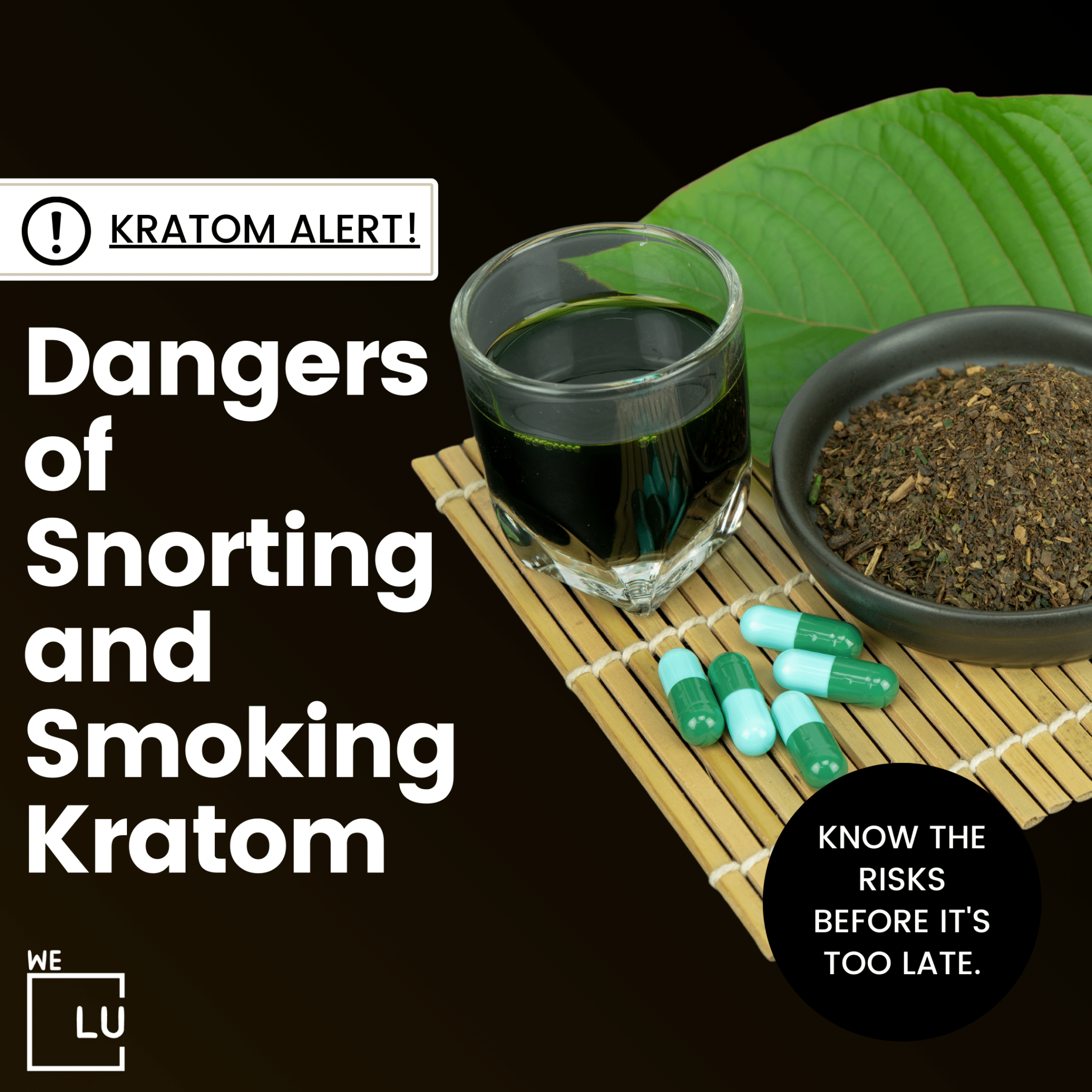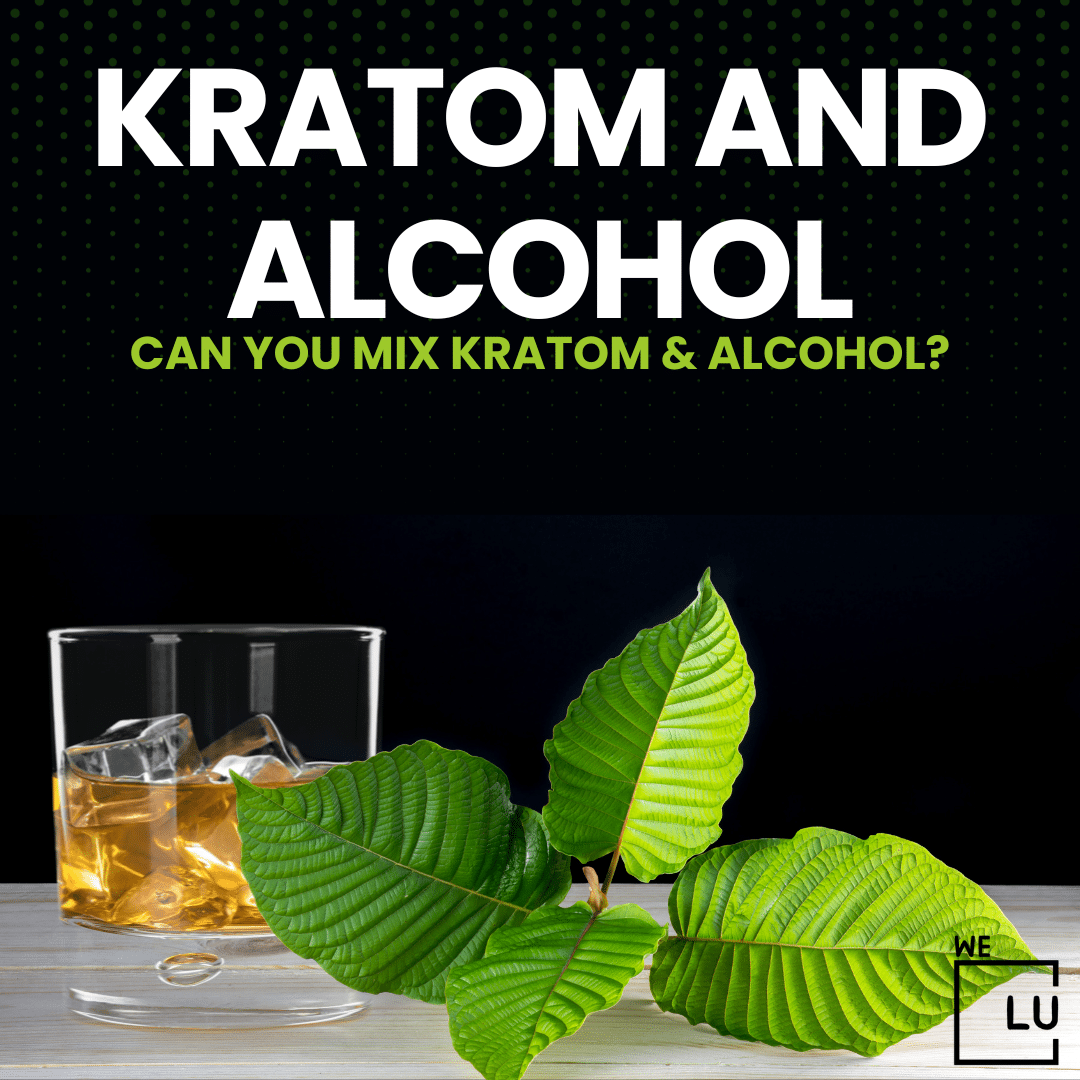Embarking on the journey of kratom detox is a courageous step toward reclaiming control over one’s life and well-being. As individuals grapple with the challenges of withdrawal, seeking professional guidance becomes paramount to ensuring a safe and effective detoxification process. Kratom, a substance with psychoactive properties, can lead to physical and psychological dependence, making the withdrawal experience complex.
At We Level Up, our team is dedicated to providing compassionate support throughout the kratom detox process and the subsequent stages of recovery from kratom addiction. If you or a loved one are navigating the path to freedom from kratom dependence, call We Level Up today to access personalized assistance, resources, and a supportive community committed to your successful recovery.
What Is Kratom Withdrawal?
Kratom withdrawal refers to a set of symptoms that some individuals may experience when they abruptly stop or reduce their use of kratom, a tropical tree native to Southeast Asia. Kratom leaves contain psychoactive compounds, including mitragynine and 7-hydroxy mitragynine, which can produce stimulant or sedative effects depending on the dosage.
While some people use kratom for various reasons, including pain relief and mood enhancement, regular and prolonged use can lead to dependence. When individuals who have developed a reliance on kratom suddenly stop using it or significantly reduce their intake, they may experience withdrawal symptoms. Withdrawal symptoms can vary in intensity and may include:
- Muscle aches and pains: A common complaint during kratom withdrawal is muscle discomfort, similar to what is experienced in the flu.
- Insomnia: Difficulty falling asleep or staying asleep is a common withdrawal symptom.
- Fatigue: Individuals may feel tired or lethargic during withdrawal.
- Irritability: Mood changes, including irritability and anxiety, are common during kratom withdrawal.
- Nausea and vomiting: Gastrointestinal symptoms, such as nausea and vomiting, can occur.
- Runny nose and watery eyes: Symptoms reminiscent of a mild cold, including a runny nose and teary eyes, can occur.
- Diarrhea: Digestive disturbances, including diarrhea, are common during withdrawal.
Learn more about Kratom Withdrawal:
Kratom Detox As Treatment For Kratom Withdrawal
Detoxification, or detox, is often a crucial first step in the treatment of kratom withdrawal. Detoxification involves the process of clearing the body of the substance and managing withdrawal symptoms. Detox alone may not be sufficient for long-term recovery from kratom dependence, and it should be followed by comprehensive addiction treatment and support.
Here are some aspects of kratom detox as a treatment for withdrawal:
- Medical Supervision: It is advisable to undergo kratom detox under the supervision of medical professionals. They can monitor vital signs, manage severe withdrawal symptoms, and provide appropriate medications if necessary. Medical supervision is particularly important if the individual has a history of medical or psychiatric conditions.
- Tapering Off Kratom: Gradual reduction or tapering of kratom dosage can be an effective strategy to minimize withdrawal symptoms. This approach is often preferred over sudden cessation, as it allows the body to adjust more gradually to decreasing levels of the substance.
- Medications: In some cases, healthcare providers may use medications to help manage specific withdrawal symptoms. For example, medicines may be prescribed to alleviate anxiety, insomnia, or gastrointestinal issues associated with kratom withdrawal.
- Supportive Care: Providing supportive care is an essential component of kratom detox. This may involve addressing nutritional needs, ensuring hydration, and managing overall well-being during withdrawal.
- Counseling and Therapy: Following detox, individuals should engage in comprehensive addiction treatment, including counseling and therapy. Behavioral therapies can help address the psychological aspects of dependence and addiction, provide coping strategies, and address underlying issues that may contribute to substance use.
- Support Groups: Joining support groups, such as 12-step programs or other recovery communities, can provide ongoing support and encouragement. Connecting with others who have experienced similar challenges can benefit long-term recovery.
Detox is just the initial phase of treatment, and ongoing support is crucial for sustained recovery. If you or someone you know is struggling with kratom dependence or addiction, seeking professional help from healthcare providers and addiction specialists is recommended. They can assess the individual’s specific needs and create a personalized treatment plan to address both the physical and psychological aspects of addiction.
How Long Does It Take To Detox From Kratom?
The duration of kratom detox can vary widely from person to person and depends on several factors, including the individual’s level of dependence, the duration of kratom use, the dosage used, and individual differences in metabolism. Kratom withdrawal symptoms typically begin within 6-12 hours after the last dose and may peak within 2-3 days. The acute withdrawal phase can last for about a week, but some individuals may experience lingering symptoms for a more extended period.
Here is a general timeline of kratom detox:
- First 24 Hours: Withdrawal symptoms often start within the first 24 hours after the last dose. Early symptoms may include muscle aches, irritability, anxiety, and cravings for kratom.
- Days 2-3: The withdrawal symptoms peak usually occurs during the second and third days. This period may include more intense symptoms such as insomnia, nausea, vomiting, diarrhea, and heightened anxiety.
- Days 4-7: Symptoms gradually begin to subside, but some individuals may experience lingering effects, including fatigue, irritability, and mood swings. The acute withdrawal phase typically lasts about a week.
- Post-Acute Withdrawal Syndrome (PAWS): Some individuals may experience a more prolonged phase known as Post-Acute Withdrawal Syndrome, or PAWS. During this phase, individuals may experience milder symptoms such as mood swings, irritability, and difficulty concentrating. PAWS can last for several weeks to months but gradually improves over time.
Medical supervision and professional support during the detox process are crucial to managing symptoms effectively. Additionally, individuals who undergo detox should consider engaging in comprehensive addiction treatment, including therapy and support groups, to address the psychological aspects of dependence and increase the chances of long-term recovery. Seeking guidance from healthcare professionals and addiction specialists is advisable for a personalized approach to detox and recovery.

Skip To:
Learn More:
- Kratom Side Effects Long-Term And Short-Term Side Effects.
- Is Kratom An Opioid? Can You Use Kratom For Opioid Withdrawal?
- Risks And Effects Of Kratom Addiction. Is Kratom Addictive?
- Kratom Withdrawal Symptoms, Timeline, Dangers, And Detox
- What is the Most Addictive Drug? Top 10 Most Addictive Drugs, Cocaine, Heroin, Alcohol & More
- What does withdrawal mean? Symptoms, Causes, Types, Treatment & Medications

Get Your Life Back
Find Hope & Recovery. Get Safe Comfortable Detox, Addiction Rehab & Dual Diagnosis High-Quality Care.
Hotline (855) 695-1160Effective Ways For Detoxing From Kratom
Detoxing from kratom should ideally be done under the guidance of healthcare professionals to ensure the safety and effective management of withdrawal symptoms. However, here are some general strategies that may be considered for detoxing from kratom:

- Medical Supervision: Detoxing under the supervision of healthcare professionals is recommended, especially if there is a history of substance dependence or if withdrawal symptoms are expected to be severe. Medical supervision allows for monitoring vital signs and prompt intervention if necessary.
- Tapering Off: Gradual reduction or tapering of kratom dosage is often recommended to minimize withdrawal symptoms. This involves slowly decreasing the amount of kratom used over some time, allowing the body to adjust more gradually.
- Hydration and Nutrition: Staying hydrated and maintaining proper nutrition are essential during detox. Dehydration and nutritional deficiencies can exacerbate withdrawal symptoms, so drink plenty of water and consume healthy, balanced meals.
- Over-the-counter Medications: Over-the-counter medications may be used to alleviate specific withdrawal symptoms. For example, medicines for diarrhea, nausea, or pain relief may be considered.
- Prescription Medications: In some cases, healthcare providers may prescribe medications to help manage withdrawal symptoms. For example, medications that address anxiety, insomnia, or gastrointestinal issues may be used under medical supervision.
- Supportive Therapies: Engaging in supportive therapies such as counseling and behavioral therapy can be beneficial during detox and beyond. These therapies help individuals develop coping strategies, address underlying issues, and establish a foundation for long-term recovery.
- Exercise and Relaxation Techniques: Regular exercise can help alleviate stress and improve mood, which may be particularly helpful during detox. Relaxation techniques such as deep breathing, meditation, or yoga can also contribute to a sense of well-being.
- Support Groups: Joining support groups or attending therapy sessions with others who have experienced kratom dependence can provide valuable support and encouragement. Sharing experiences and learning from others can be instrumental in the recovery process.
Get Help. Get Better. Get Your Life Back.
Searching for an Accredited Drug and Alcohol Rehab Centers in Near You?
Even if you have failed previously and relapsed, or are in the middle of a difficult crisis, we stand ready to support you. Our trusted behavioral health specialists will not give up on you. When you feel ready or just want someone to speak to about therapy alternatives to change your life call us. Even if we cannot assist you, we will lead you to wherever you can get support. There is no obligation. Call our hotline today.
FREE Addiction Hotline – Call 24/7Risks Of Kratom Detox
Detoxing from kratom, like detoxing from other substances, can pose certain risks and challenges. Approach the detox process cautiously, ideally, under healthcare professionals’ guidance. Some of the risks associated with kratom detox include:
- Withdrawal Symptoms: Kratom withdrawal can be accompanied by a range of symptoms, including anxiety, irritability, nausea, vomiting, muscle aches, insomnia, and more. The severity of symptoms can vary among individuals and may be influenced by factors such as the level of dependence, duration of use, and individual differences.
- Dehydration and Nutritional Deficiencies: During detox, individuals may experience loss of appetite, nausea, or vomiting, leading to dehydration and nutritional deficiencies. Stay hydrated and maintain proper nutrition to support the body’s recovery.
- Risk of Relapse: Detox alone does not address the underlying reasons for kratom use. Without proper follow-up treatment, individuals may be at risk of relapse, as they may not have developed the coping skills needed to maintain abstinence.
- Psychological Challenges: Kratom detox is not only a physical process but also a psychological one. Individuals may experience mood swings, anxiety, and other mental health challenges during withdrawal. Without proper support, these psychological symptoms can be difficult to manage.
- Medical Complications: In some cases, individuals may have underlying medical conditions that could be exacerbated during detox.
- Post-Acute Withdrawal Syndrome (PAWS): Some individuals may experience a prolonged withdrawal phase known as Post-Acute Withdrawal Syndrome (PAWS). This phase may involve lingering symptoms such as mood swings, irritability, and difficulty concentrating, which can persist for weeks to months.
- Self-Medication Risks: Some individuals may attempt to self-medicate during detox, using substances or medications without professional guidance. This can lead to complications and may not effectively address withdrawal symptoms.

Given these risks, it’s strongly recommended that individuals seeking to detox from kratom do so under the supervision of healthcare professionals or addiction specialists. A comprehensive treatment approach, which includes medical supervision, counseling, and support groups, is generally more effective in promoting long-term recovery.
If you or someone you know is considering kratom detox, consult with healthcare professionals who specialize in addiction treatment. They can assess individual needs, provide guidance on the detox process, and create a personalized treatment plan that addresses both the physical and psychological aspects of dependence.
Comfortable Facilities & Amenities
High-Quality Addiction & Mental Health Rehabilitation Treatment
Rehab Centers TourRenowned California Addiction Center. Serene Private Facilities. Inpatient rehab programs vary.
Addiction Helpline (855) 695-1160Proven recovery success experience, backed by a Team w/ History of:
15+
Years of Unified Experience
100s
5-Star Reviews Across Our Centers
10K
Recovery Success Stories Across Our Network
- Low Patient to Therapist Ratio
- Onsite Medical Detox Center
- Comprehensive Dual-Diagnosis Treatment
- Complimentary Family & Alumni Programs
- Coaching, Recovery & Personal Development Events
Other Treatments For Kratom Withdrawal
In addition to detoxification, various treatments and strategies can be employed to help individuals manage kratom withdrawal and support long-term recovery. Here are some additional treatments and interventions for kratom withdrawal:

- Behavioral Therapies: Engaging in behavioral therapies, such as cognitive behavioral therapy (CBT) or contingency management, can be beneficial. These therapies help individuals identify and change patterns of thinking and behavior that contribute to substance use.
- Counseling and Psychotherapy: Individual or group counseling sessions with trained therapists can provide emotional support, help address underlying issues contributing to substance use, and offer coping strategies for managing cravings and stress.
- Support Groups: Participating in support groups, such as 12-step programs like Narcotics Anonymous (NA) or other recovery communities, can offer a sense of community, understanding, and accountability.
- Mindfulness and Meditation: Mindfulness-based interventions and meditation techniques can help individuals become more aware of their thoughts and feelings, manage stress, and improve overall well-being.
- Nutritional Support: A balanced and healthy diet can contribute to overall well-being during recovery. Nutritional counseling may be helpful to address any deficiencies and support physical health.
- Exercise and Physical Activity: Regular exercise has been shown to affect mood positively and can be a helpful component of a comprehensive recovery plan.
- Medications: In some cases, medications may be prescribed to help manage specific withdrawal symptoms or co-occurring mental health conditions. This should be done under the guidance of a healthcare professional.
- Holistic Approaches: Some individuals find holistic approaches, such as acupuncture, yoga, or massage therapy, beneficial for managing stress and promoting relaxation during recovery.
- Educational Programs: Learning about addiction, relapse prevention, and developing life skills through educational programs can empower individuals to make positive life changes.
- Relapse Prevention Planning: Developing a relapse prevention plan with the help of a therapist or counselor can be instrumental in identifying triggers, developing coping strategies, and creating a roadmap for maintaining sobriety.
A personalized approach to treatment is key, as individuals may have different needs and preferences. Seeking help from healthcare professionals, addiction specialists, and mental health professionals can guide you in tailoring a treatment plan to meet specific needs and increase the likelihood of successful recovery.
World-class, Accredited, 5-Star Reviewed, Effective Addiction & Mental Health Programs. Complete Behavioral Health Inpatient Rehab, Detox plus Co-occuring Disorders Therapy.
CALL (855) 695-1160End the Addiction Pain. End the Emotional Rollercoaster. Get Your Life Back. Start Drug, Alcohol & Dual Diagnosis Mental Health Treatment Now. Get Free No-obligation Guidance by Substance Abuse Specialists Who Understand Addiction & Mental Health Recovery & Know How to Help.
“We Level Up Saved My Life” Take that Leap of Faith to Change your Life” w/ A-rated Drug Rehab Detox
Experience Transformative Recovery at the We Level Up California Treatment Center.
See our authentic success stories. Get inspired. Get the help you deserve.



Start a New Life
Begin with a free call to an addiction & behavioral health treatment advisor. Learn more about our dual-diagnosis programs. The We Level Up treatment center network delivers recovery programs that vary by each treatment facility. Call to learn more.
- Personalized Care
- Caring Accountable Staff
- World-class Amenities
- Licensed & Accredited
- Renowned w/ 100s 5-Star Reviews
We’ll Call You
Search We Level Up CA Kratom Detox Drug & Alcohol Rehab / Detox & Mental Health Topics & Resources
Sources
- Henningfield JE, Chawarski MC, Garcia-Romeu A, Grundmann O, Harun N, Hassan Z, McCurdy CR, McMahon LR, Sharma A, Shoaib M, Singh D, Smith KE, Swogger MT, Vicknasingam B, Walsh Z, Wang DW, Huestis MA. Kratom withdrawal: Discussions and conclusions of a scientific expert forum. Drug Alcohol Depend Rep. 2023 Mar 15;7:100142. doi: 10.1016/j.dadr.2023.100142. PMID: 37397437; PMCID: PMC10311168. https://www.ncbi.nlm.nih.gov/pmc/articles/PMC10311168/ Read More: kratom detox, detoxing from kratom, kratom for opiate detox, how to detox from kratom, detox from kratom, how long does it take to detox from kratom,
- Striley CW, Hoeflich CC, Viegas AT, Berkowitz LA, Matthews EG, Akin LP, Iheanyi-Okeahialam C, Mansoor U, McCurdy CR. Health Effects Associated With Kratom (Mitragyna speciosa) and Polysubstance Use: A Narrative Review. Subst Abuse. 2022 May 20;16:11782218221095873. doi: 10.1177/11782218221095873. PMID: 35645563; PMCID: PMC9130800. https://www.ncbi.nlm.nih.gov/pmc/articles/PMC9130800/
- NIDA. “Kratom.” National Institute on Drug Abuse, 25 Mar. 2022, https://nida.nih.gov/research-topics/kratom
- DEA – Kratom Drug Fact Sheet – https://www.dea.gov/sites/default/files/2020-06/Kratom-2020_0.pdf
- FDA – Kratom – https://www.fda.gov/news-events/public-health-focus/fda-and-kratom
- Jentsch MJ, Pippin MM. Kratom. [Updated 2023 Aug 28]. In: StatPearls [Internet]. Treasure Island (FL): StatPearls Publishing; 2023 Jan-. Available from: https://www.ncbi.nlm.nih.gov/books/NBK585120/
- Eastlack SC, Cornett EM, Kaye AD. Kratom-Pharmacology, Clinical Implications, and Outlook: A Comprehensive Review. Pain Ther. 2020 Jun;9(1):55-69. doi: 10.1007/s40122-020-00151-x. Epub 2020 Jan 28. PMID: 31994019; PMCID: PMC7203303. https://pubmed.ncbi.nlm.nih.gov/31994019/
- Singh D, Narayanan S, Vicknasingam B, Corazza O, Santacroce R, Roman-Urrestarazu A. Changing trends in the use of kratom (Mitragyna speciosa) in Southeast Asia. Hum Psychopharmacol. 2017 May;32(3). doi: 10.1002/hup.2582. Epub 2017 May 24. PMID: 28544011. https://pubmed.ncbi.nlm.nih.gov/28544011/
- Grundmann O, Veltri CA, Morcos D, Knightes D 3rd, Smith KE, Singh D, Corazza O, Cinosi E, Martinotti G, Walsh Z, Swogger MT. Exploring the self-reported motivations of kratom (Mitragyna speciosa Korth.) use: a cross-sectional investigation. Am J Drug Alcohol Abuse. 2022 Jul 4;48(4):433-444. doi: 10.1080/00952990.2022.2041026. Epub 2022 Apr 7. PMID: 35389321.https://pubmed.ncbi.nlm.nih.gov/35389321/
- Papadi G, Bakhiya N, Ildico Hirsch-Ernst K. Assessment of the possible health risks associated with the consumption of botanical preparations of Mitragyna speciosa (kratom). EFSA J. 2022 May 25;20(Suppl 1):e200415. doi: 10.2903/j.efsa.2022.e200415. PMID: 35634550; PMCID: PMC9131591. https://pubmed.ncbi.nlm.nih.gov/35634550/
- Singh D, Müller CP, Vicknasingam BK, Mansor SM. Social Functioning of Kratom (Mitragyna speciosa) Users in Malaysia. J Psychoactive Drugs. 2015 Apr-Jun;47(2):125-31. doi: 10.1080/02791072.2015.1012610. PMID: 25950592. https://pubmed.ncbi.nlm.nih.gov/25950592/




